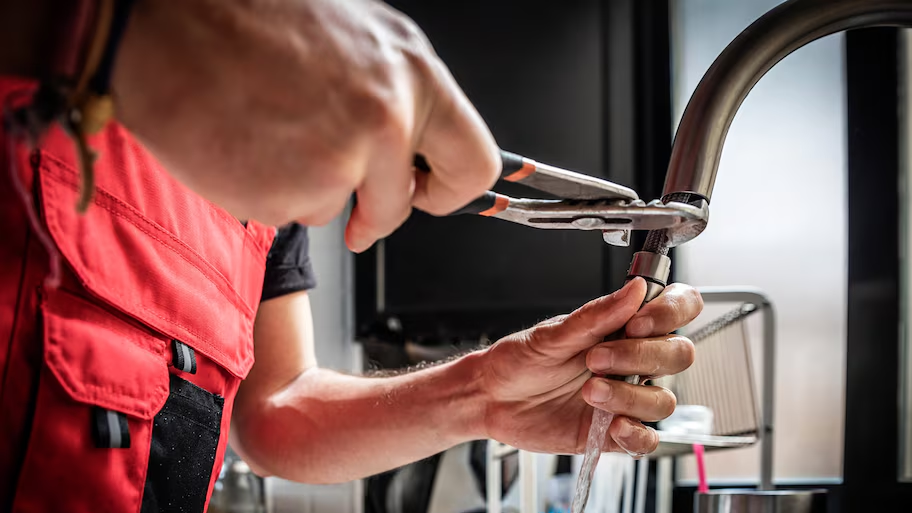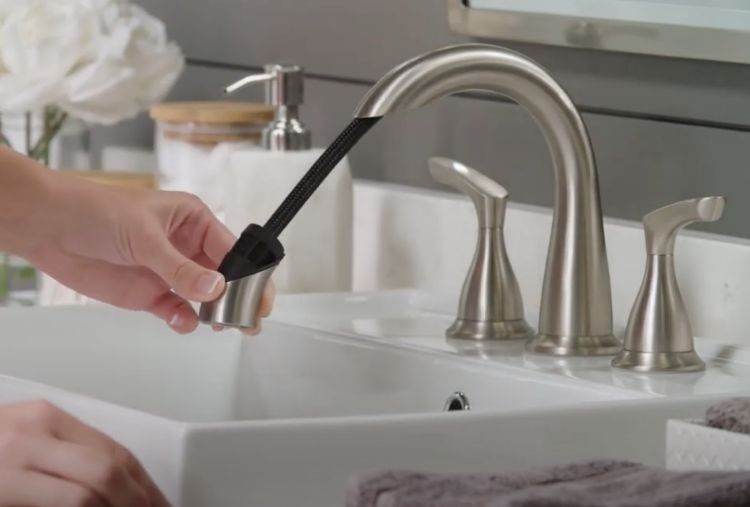Have you been searching for related information concerning Leaky Faucets: Why They Happen & What to Do About Them?

Leaking taps may appear like a minor inconvenience, yet their impact goes beyond just the annoyance of the noise. From drainage to incurring unneeded financial expenses and health and wellness dangers, disregarding a leaking tap can bring about various consequences. In this short article, we'll delve into why it's vital to address this usual house issue without delay and successfully.
Wastefulness of Water
Environmental Effect
Leaking faucets contribute dramatically to water waste. According to the Epa (EPA), a solitary tap dripping at one drip per secondly can lose more than 3,000 gallons of water annually. This not just pressures water resources however likewise influences environments and wildlife depending on them.
Financial Prices
Enhanced Water Costs
Beyond the ecological impact, leaking faucets can pump up water bills significantly. The gathered wastage with time translates into greater energy expenditures, which could have been prevented with timely repair work.
Prospective Building Damages
Additionally, extended leaking can lead to damage to fixtures and surface areas bordering the faucet. Water accumulation can create discoloration, deterioration, and also structural concerns if left neglected, resulting in additional repair prices.
Health and wellness Concerns
Mold And Mildew and Mold Development
The constant visibility of moisture from a trickling faucet creates a suitable atmosphere for mold and mildew and mildew development. These fungi not just compromise interior air high quality however likewise pose health and wellness dangers, particularly for people with respiratory system problems or allergic reactions.
Waterborne Conditions
Stagnant water in trickling taps can become a breeding place for germs and other pathogens, boosting the threat of waterborne diseases. Pollutants such as Legionella microorganisms grow in stationary water, possibly bring about major diseases when ingested or inhaled.
Do it yourself vs. Expert Fixing
Pros and Cons of Do It Yourself Repair Work
While some may try to take care of a dripping tap themselves, DIY repair services include their very own set of obstacles. Without appropriate understanding and tools, do it yourself efforts can worsen the issue or bring about insufficient fixings, lengthening the problem.
Advantages of Hiring a Specialist Plumber
Hiring a specialist plumber makes sure that the underlying root cause of the trickling faucet is addressed properly. Plumbers possess the expertise and tools to detect and repair faucet issues successfully, conserving time and reducing the danger of further damages.
Step-by-Step Guide to Repairing a Dripping Faucet
Devices Required
Before trying to repair a trickling faucet, gather the necessary tools, including an adjustable wrench, screwdrivers, replacement components (such as washing machines or cartridges), and plumber's tape.
Usual Tap Issues and Their Solutions
Identify the type of tap and the details concern causing the drip. Typical problems consist of damaged washers, corroded shutoff seats, or malfunctioning O-rings. Refer to producer instructions or on-line tutorials for detailed advice on fixings.
Preventive Measures
Routine Maintenance Tips
To avoid dripping faucets, carry out routine maintenance such as cleaning up aerators, checking for leakages, and changing worn-out parts quickly. Additionally, take into consideration mounting water-saving gadgets or upgrading to extra effective fixtures.
Importance of Prompt Services
Attending to dripping faucets as soon as they're noticed protects against more water waste and prospective damage, inevitably conserving both water and money in the long run.
Influence On Residential Or Commercial Property Worth
Understanding of Well-Maintained Home
Maintaining a property in good condition, including addressing maintenance concerns like dripping faucets, boosts its perceived value and worth among prospective purchasers or lessees.
Influence on Resale Value
Features with well-kept plumbing components, including faucets, command higher resale values in the realty market. Resolving dripping faucets can contribute to a positive impression during building examinations and arrangements.
Ecological Duty
Private Contribution to Conservation
Taking responsibility for fixing trickling taps aligns with broader initiatives toward water conservation and environmental sustainability. Every individual's actions jointly make a considerable impact on protecting precious sources.
Sustainable Living Practices
By focusing on prompt fixings and adopting water-saving behaviors, individuals add to sustainable living methods that profit both present and future generations.
Final thought
Resolving a dripping faucet surpasses mere benefit; it's a vital action towards conserving water, decreasing monetary prices, and guarding health and residential or commercial property. Whether with do it yourself repair services or specialist help, doing something about it to deal with trickling taps is a little yet impactful method to promote responsible stewardship of sources and add to a healthier, much more lasting future.
How to Fix a Leaky Faucet: Step-by-Step Repair Guide
A leaky faucet may seem like a simple annoyance, but if it's not fixed promptly, that leak could cost hundreds to potentially thousands. From water damage to mold, mildew, and high water bills, even a tiny leak can be catastrophic if left unattended. Damage like this can even affect the overall value of your home, so it's important to take the right approach for leaky faucet repair. You may need the help of a plumber in some cases, but we've got a few tips you can try on how to fix a leaky faucet before calling the pros.
Four Faucet Types
When you're learning how to fix a leaky faucet, the first step is knowing what kind of faucet you're working with! There are four common types.
Cartridge Faucets
Cartridge faucets come in one- or two-handled varieties. In one-handled cartridge faucets, hot and cold water combines in a single cartridge. In the two-handled versions, hot and cold water are controlled separately and mixed in the faucet.
Ball Faucets
Ball faucets have a single lever you push up and down to adjust the pressure and rotate to change the temperature. A slotted metal ball controls the amount of water allowed into the spout.
Compression Washer Faucets
They're the oldest type of faucet, but they're still used in many homes — especially older ones. Compression faucets have two separate handles that, when turned, raise or lower the washer that seals a water valve. This valve stops water from flowing through the faucet when it is turned off.
Disc Faucets
Disc faucets rarely need to be repaired due to their maintenance-free design. The water flow is controlled by two discs — the upper one raises and lowers against a fixed lower disc, creating a watertight seal. If your disc faucet starts leaking, you may need to replace the seals or clean residue buildup from the inlets.
Fixing a Leaky Faucet
Step 1: Turn Off the Water
Whether you're learning how to fix a leaky bathtub faucet or how to fix a leaky kitchen faucet, always turn off the water supply to your working area when you're fixing a leak. The last thing you want is a flood added to your list of things to fix.
Look for the shutoff valves below your sink or around the tub and turn them clockwise to stop the water flow. If your faucet doesn't have shutoff valves, you may need to turn off the water for the whole house. Check to make sure it's off by turning the faucet on. If nothing comes out, you're ready to start the repair.
Step 2: Take Apart the Faucet
How you disassemble your faucet depends on the type of fixture you have. You can use a flathead screwdriver to remove the caps on top of the handle or handles for cartridge and compression faucets. Inside, you should see handle screws. Unscrew these with a screwdriver to remove the handle.
Disc- and ball-style faucets will typically have an inlet screw near the handle, and removing that will reveal the interior of the faucet.
Detach the Valve Stem
For cartridge- and compression-style faucets, you'll see the inner valve stem or cartridge once you remove the faucet handles. If you have a compression faucet, unscrew the brass valve stem. If you have a cartridge faucet, pull out the cartridge. If your cartridge has been in place for a while, it may require some tools or extra force to remove it due to mineral deposits.
Examine and Replace Parts
Once you've removed the parts, check them out to confirm what needs to be replaced. You may see corroded rubber washers, O-rings, stems, or cartridges. On a ball-style faucet, check the seats and springs for damage.
If you need to repair a leaky disc faucet, check the inlet and seals on the lower disc.
Once you determine what parts must be replaced, visit your local hardware store. Bring the damaged parts with you to ensure you can purchase the correct components to replace them.
Clean Valves and Faucet Cavity
If you've removed a stem or cartridge, you may notice mineral buildup in the faucet's threads. Use white vinegar to clean the valve seat by soaking it for a few minutes, then scrub it away with a soft toothbrush and rinse with warm water. You can also clean the interior of the faucet in the same way.
Reassemble the Faucet
Once your faucet is cleaned and the required parts have been replaced, it's time to reassemble it. Put the pieces back together and slowly turn the water supply back on. Doing this slowly is crucial because too much initial water pressure can damage the new hardware you've just installed.
https://homewarranty.firstam.com/blog/how-to-fix-leaky-faucet

We were made aware of that write-up about How to Fix a Dripping or Leaky Faucet through a friend on a different site. Are you aware of another individual who is fascinated with the topic? Take a moment to promote it. We appreciate reading our article about Why Is It Important To Fix Your Leaking Tap/Faucet?.